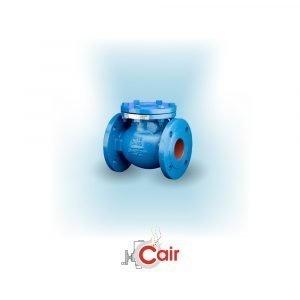Introduction
In the vast landscape of industrial processes, the unidirectional flow of fluids is paramount. Among the tools that ensure this crucial function is the Non-Return Valve (NRV valve). Let's dive into the intricacies of NRV valves, understanding their significance and diverse applications across industries.
Understanding NRV Valve
Definition and Purpose
The NRV valve, also known as a check valve, is a mechanical device designed to allow fluid to flow in one direction only. Its primary purpose is to prevent backflow, ensuring that once the fluid passes through, it cannot return.
Types of NRV Valves
There are various types of NRV valves, each tailored to specific industrial needs. Swing check valves, lift check valves, and tilting disc check valves are among the common types, each with its unique design and functionality.
Working Mechanism
Understanding the working mechanism of NRV valves is crucial to grasp their effectiveness in preventing backflow. These valves operate based on simple yet ingenious principles, relying on gravity, spring-loaded mechanisms, or disc orientation to facilitate one-way flow.
How NRV Valves Prevent Backflow
The prevention of backflow is achieved through the valve's ability to close automatically once the fluid direction changes. This not only maintains the desired flow but also minimizes the risk of contamination and damage to equipment.
Key Components and Functions
The components of NRV valves, such as the disc, body, and seat, play integral roles in their functions. The disc, for instance, acts as the barrier to reverse flow, while the body provides structural support and guides the fluid.
Applications in Various Industries
The versatility of NRV valves extends across multiple industries, contributing to the seamless operation of various processes.
- Oil and Gas: In the oil and gas sector, NRV valves play a crucial role in preventing the reversal of flow in pipelines, ensuring the safety and efficiency of fluid transport.
- Chemical Manufacturing: Chemical processing plants benefit from NRV valves by preventing the mixing of different substances, maintaining the integrity of the production process.
- Water Treatment: NRV valves are essential in water treatment facilities, where maintaining the direction of fluid flow is vital to the purification process.
Importance in Fluid Control
- Ensuring One-Way Flow: NRV valves serve as guardians of one-way flow, preventing the costly and potentially hazardous consequences of backflow in pipelines.
- Minimizing Risks in Pipelines: By minimizing the risks associated with fluid reversal, NRV valves contribute to the overall safety and reliability of industrial pipelines.
Choosing the Right NRV Valve
Selecting the appropriate NRV valve depends on various factors, and a thoughtful consideration of these aspects is crucial for optimal performance.
Factors to Consider
Flow rate, pressure, and the nature of the fluid are among the factors that influence the choice of NRV valves. Understanding these variables ensures compatibility with the specific application.
Different Scenarios and Valve Selection
Different scenarios, such as high-pressure systems or corrosive environments, may require specific types of NRV valves. Tailoring the selection to the unique demands of each scenario is imperative for success.
Maintenance and Inspection
The longevity and effectiveness of NRV valves hinge on regular maintenance and inspection protocols.
Regular Checks for Optimal Performance
Routine checks, including inspecting for wear and tear, lubricating moving parts, and ensuring proper alignment, are essential for maintaining optimal NRV valve performance.
Common Issues and Troubleshooting
Identifying and addressing common issues, such as leaks or sticking valves, through systematic troubleshooting ensures the continuous functionality of NRV valves.
Benefits of Using NRV Valves
- Improved Efficiency: The implementation of NRV valves contributes to improved operational efficiency by preventing disruptions caused by backflow.
- Cost Savings: The prevention of damage and downtime translates to significant cost savings for industries relying on NRV valves for fluid control.
- Environmental Impact: NRV valves play a role in environmental conservation by minimizing the risk of fluid contamination and spills, thus reducing the impact on ecosystems.
Conclusion
In conclusion, NRV valves stand as indispensable guardians of fluid control in diverse industries. Their role in preventing backflow, ensuring efficiency, and contributing to environmental conservation highlights their significance in the industrial landscape.


No comments yet